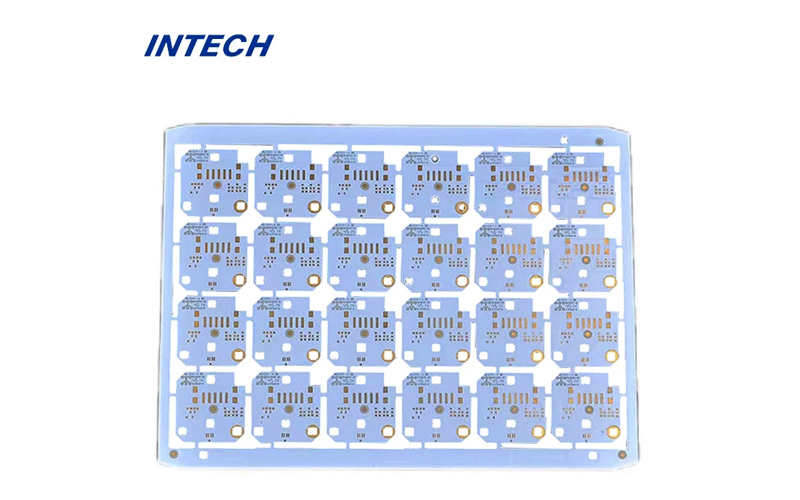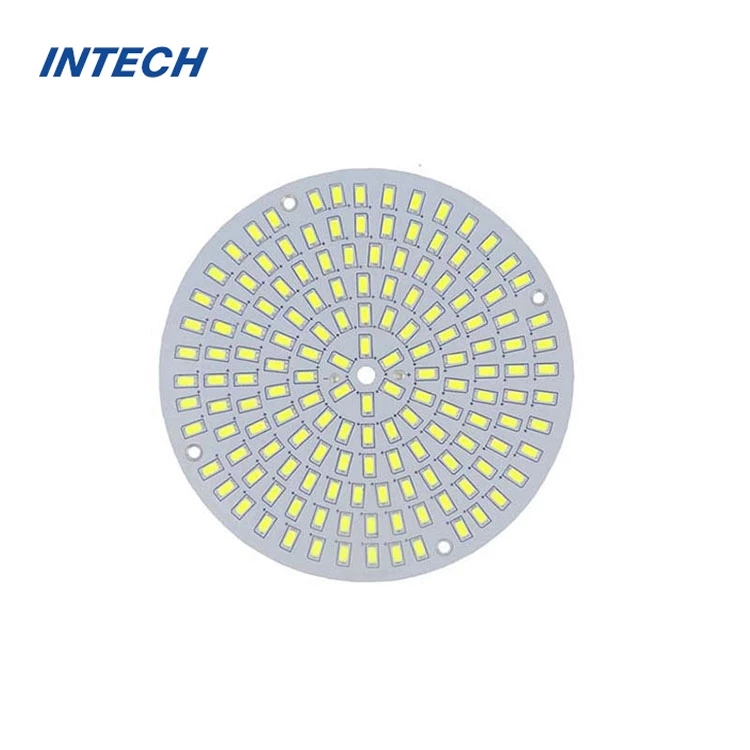What are the soldering requirements for aluminum PCB boards?
Date:2024-04-09 02:37:58
Aluminum PCB boards, also known as metal core PCBs (MCPCBs), are specialized printed circuit boards designed for applications requiring efficient heat dissipation and enhanced thermal management. Soldering plays a crucial role in the assembly process of aluminum PCB boards, ensuring reliable connections between components and the PCB surface. In this article, we will explore the soldering requirements for aluminum PCB boards, including materials, techniques, and considerations to ensure successful soldering.


Material Compatibility:Soldering aluminum PCB boards requires materials that are compatible with both the aluminum substrate and the soldering process. This includes solder alloys, fluxes, and surface finishes that are specifically formulated for use with aluminum substrates. Aluminum-compatible solder alloys typically contain additives such as zinc or titanium to improve wetting and adhesion to the aluminum surface.
Surface Preparation:Proper surface preparation is essential for successful soldering on aluminum PCB boards. The aluminum substrate must be thoroughly cleaned and degreased to remove any contaminants that may interfere with solder wetting and adhesion. Surface treatment techniques such as chemical etching or mechanical abrasion may be used to improve surface roughness and promote better solderability.
Flux Selection:Flux is a critical component in the soldering process, serving to remove oxides, promote solder wetting, and prevent oxidation of the aluminum surface. When soldering aluminum PCB boards, it is essential to use flux formulations that are specifically designed for aluminum substrates. Aluminum-compatible fluxes typically contain active ingredients such as organic acids or halides that are effective at soldering aluminum surfaces.
Soldering Techniques:Several soldering techniques can be used to assemble components onto aluminum PCB boards, including reflow soldering, wave soldering, and hand soldering. Reflow soldering is the most commonly used technique for surface mount components, where solder paste is applied to the pads, and components are placed onto the PCB before heating in a reflow oven. Wave soldering is used for through-hole components, where the PCB is passed over a wave of molten solder to solder the components in place. Hand soldering may be used for rework or touch-up operations, requiring skilled operators and careful attention to temperature control.
Temperature Control:Temperature control is critical when soldering aluminum PCB boards to prevent thermal damage to the substrate and components. Aluminum has a higher thermal conductivity than traditional FR4 substrates, meaning it dissipates heat more rapidly. Proper temperature profiling is essential during reflow soldering to ensure uniform heating and avoid thermal shock. Wave soldering parameters must also be carefully controlled to prevent overheating of the aluminum substrate.
Avoidance of Thermal Stress:Aluminum PCB boards are more susceptible to thermal stress than traditional PCBs due to their higher coefficient of thermal expansion (CTE). Excessive thermal stress during soldering can lead to delamination, warping, or cracking of the substrate. To mitigate thermal stress, gradual heating and cooling ramps should be used during reflow soldering, and the temperature differentials between the PCB and components should be minimized.
Soldering aluminum PCB boards requires careful consideration of materials, techniques, and temperature control to ensure successful assembly and reliable connections. By using aluminum-compatible solder alloys, fluxes, and surface treatments, manufacturers can achieve high-quality solder joints with excellent adhesion and reliability. Proper surface preparation, temperature control, and avoidance of thermal stress are essential to prevent damage to the aluminum substrate and components during soldering. With attention to these soldering requirements, aluminum PCB manufacturers can produce PCBs that meet the demanding thermal management needs of various industries and applications.
